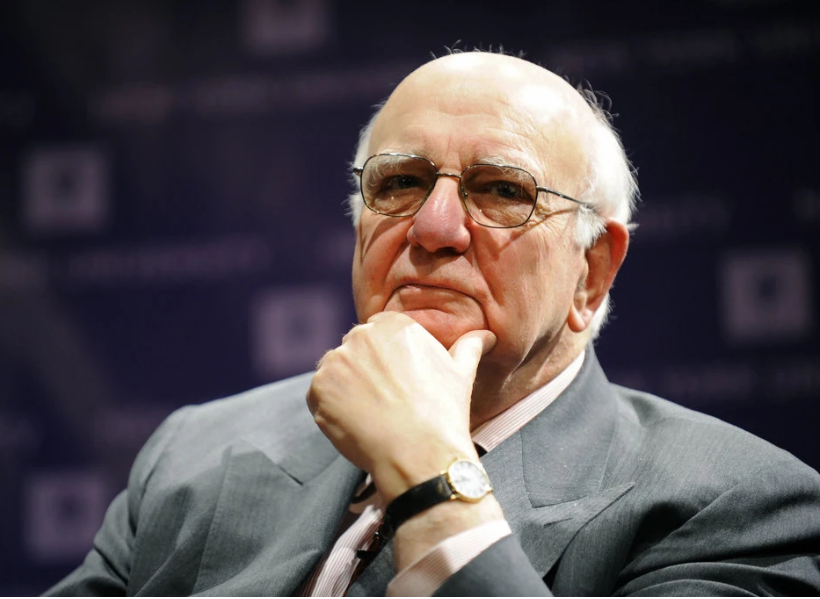This past week, yours truly for quite some time and, one can hope, much of the world for at least a moment, turned attention to the passing of Paul Volcker, 92, at his home in New York. The estimable Martin Wolf devoted his FT column on Wednesday to Volcker, and I could almost end this column of mine with the opening and closing lines of that column:
Paul Volcker was the greatest man I have ever known. He was endowed to the highest degree with what the Romans called virtus (virtue): moral courage, integrity, sagacity, prudence, devotion to the service of country. [.,.]
In tackling today’s challenges, the details of what Volcker did are irrelevant. But his lessons are not: Do the right thing even if the right choice is rather less obvious today; do not put your trust in unbridled [conventional wisdom]; and have courage. The world is a complex and surprising place. But these truths abide forever.
And this from the always reliable Neil Irwin at the NYT:
Always rumpled, always mumbling, his 6-foot-7-inch frame often slumping, he was not trying to be a globe-trotting master of industry or political mover and shaker. He was often dismissive of the views of powerful bankers and politicians. And he lived modestly, wearing ill-fitting suits and smoking cheap cigars and living in a small, not-at-all-posh apartment in Washington with his family back in New York. He didn’t focus much on his own status, which made him especially suited to resist the inevitable political pressure that arose when his course of action caused mass unemployment in the early 1980s. […]
His life is a testament to what dedicated public servants can do when they put their heads down, and are guided not by how things worked in the past, or how they might wish them to be, but by the world as it is. And the right answer isn’t always the most popular.
My favorite story of Volcker as the anti-master-of-the-universe is that of the Nash Rambler he owned in the 1960’s, not exactly your awe-inspiring testosterone-dripping Italo-German supercar, whose driver’s seat collapsed with age (Volcker was a big guy at 6’7″ and not slight of build). Volcker propped it up by wedging a dining chair behind it and continued to drive the car.
Are you surprised Volcker titled his 2018 memoir Keeping At It?




Bruce,
Nice segue from considering roles for a Chief Innovation Officer: closing the loop. After-action reviews (in appropriate forms, often most effectively in tiers) are strong tools with demonstrated records as contributors to mission success. If they are combined also with tools such as the “Pre-Mortem” (covered in ASE 24 Jan 17, I believe), there can be a basis for “continuous improvement” even in organizations that are not producing widgets or airliners.